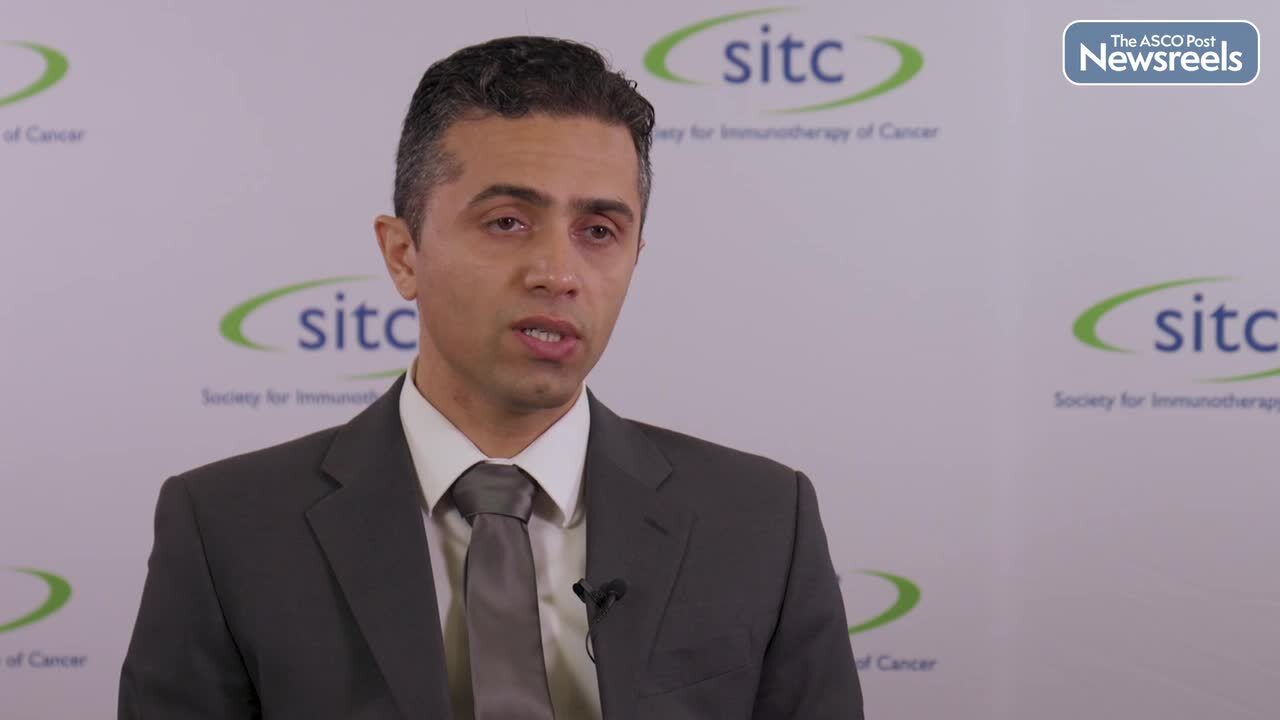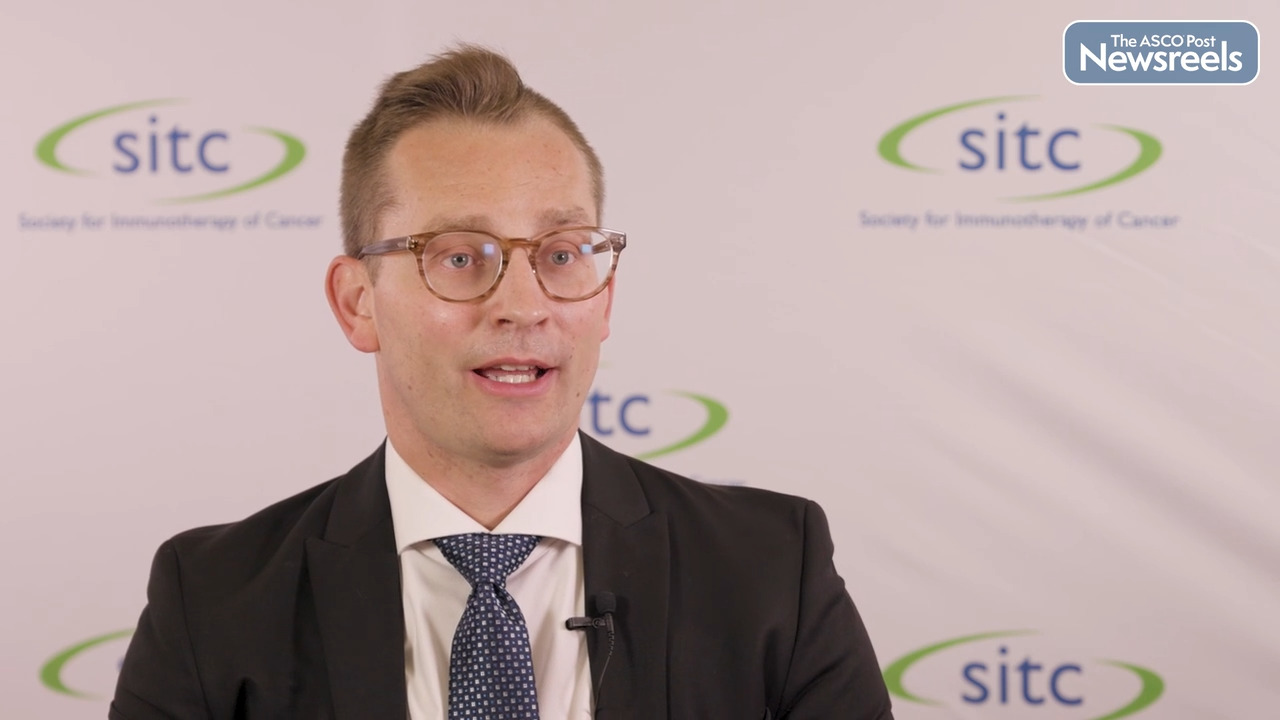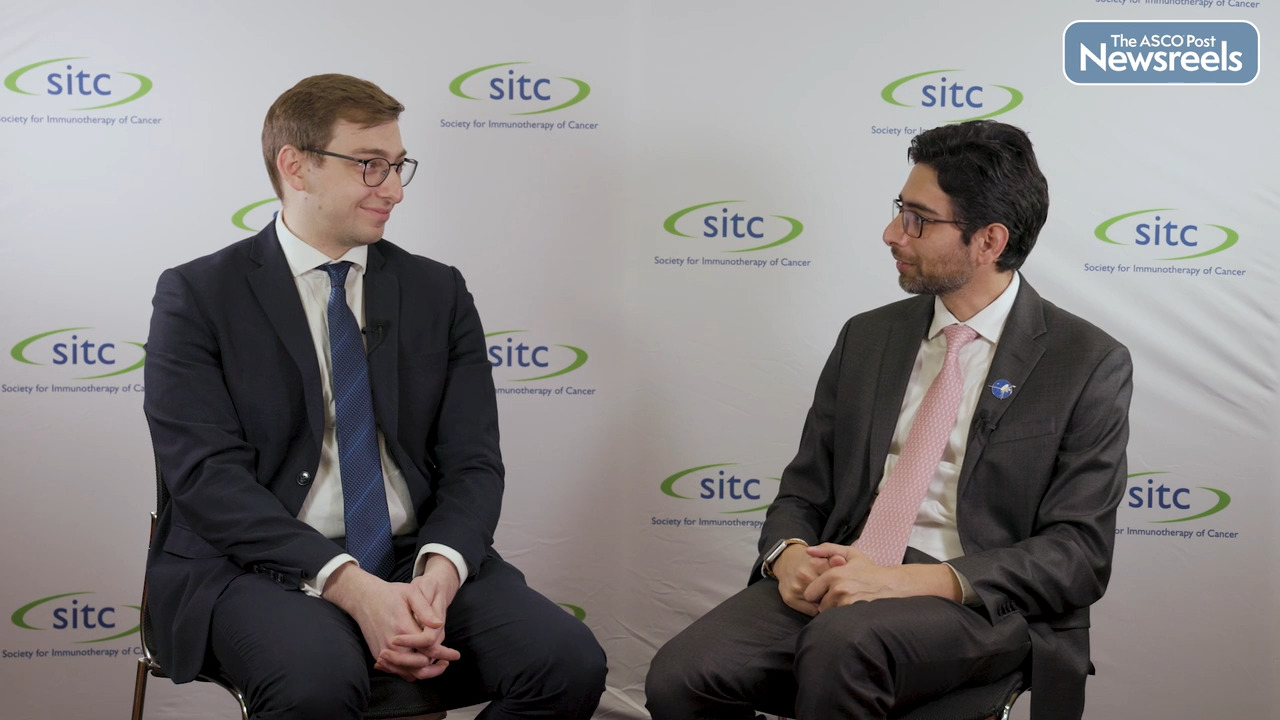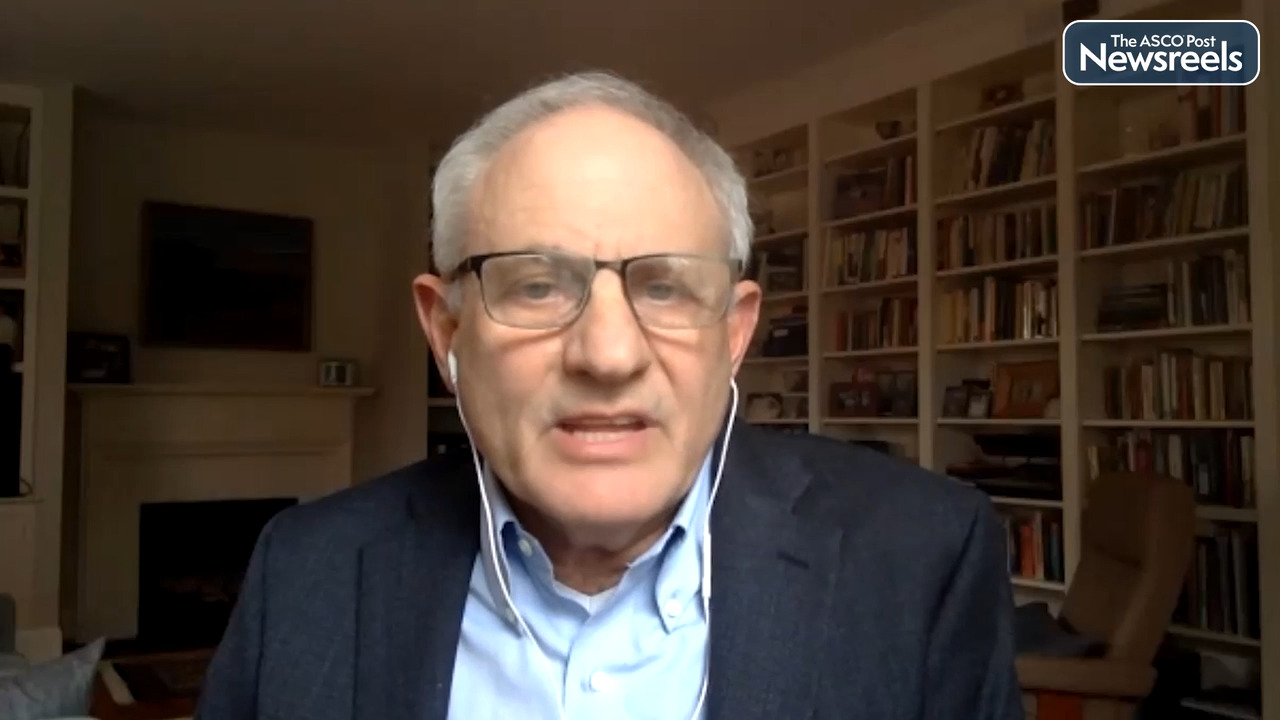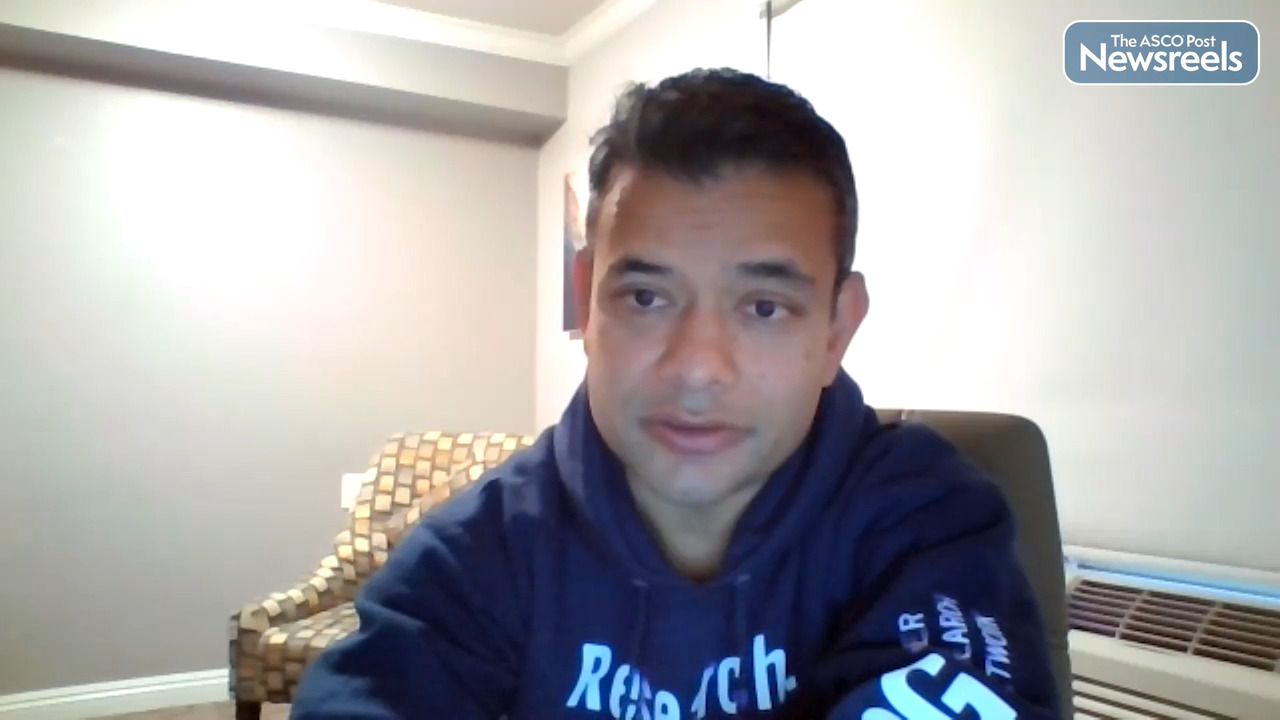David Reardon, MD, on Glioblastoma: A Microbiome-Based Vaccine, Nivolumab, and Bevacizumab
SITC 2022
David Reardon, MD, of Dana-Farber Cancer Institute, discusses phase I/II results from the EOGBM1-18/ROSALIE study, which showed the EO2401 vaccine plus nivolumab generated systemic immune responses correlating with efficacy in patients with recurrent glioblastoma. Adding bevacizumab to this combination appeared to improve efficacy. (Abstract 642).
The ASCO Post Staff
Saman Maleki, PhD, of Canada’s Western University and Lawson Health Research Institute, discusses modifying the gut microbiome in patients with advanced melanoma to induce a response to anti–PD-1 therapy and potentially reduce primary resistance to immunotherapy. A fecal microbiota transplant from healthy donors before treatment appears to be beneficial (Abstract 614).
The ASCO Post Staff
Wade T. Iams, MD, of Vanderbilt University Medical Center, discusses phase II efficacy results from the first-line non–small cell lung cancer cohort of the TACTI-002 study. The results suggest that when combined with pembrolizumab, eftilagimod alpha yielded encouraging efficacy across all PD-L1 levels, including patients with PD-L1 low and PD-L1 negative disease (Abstract 1470).
The ASCO Post Staff
Talal El Zarif, MD, of Dana-Farber Cancer Institute, and Abdul Rafeh Naqash, MD, of Stephenson Cancer Center at The University of Oklahoma, discuss the results of their cohort study of patients living with HIV and metastatic non–small cell lung cancer, who are often underrepresented in clinical trials, and the safety and efficacy of treating this unique population with immune checkpoint inhibitors (ICIs). The data showed that patients living with HIV and lung cancer had similar toxicity profiles and clinical outcomes as did those who did not have HIV and received ICIs (Abstract 437).
The ASCO Post Staff
Michael B. Atkins, MD, of Georgetown Lombardi Comprehensive Cancer Center, explores recent clinical trials in immuno-oncology in which the phase III trial produced markedly different results from the phase II trial. To help understand the potential value to patients of late-stage trials of treatment combinations, the Society for Immunotherapy of Cancer has developed a checklist for investigators, applicable to any regimen in which immune modulation is an important component of the antitumor effect.
The ASCO Post Staff
Sumanta Pal, MD, of the City of Hope Comprehensive Cancer Center, discusses phase I results from the COBALT-RCC study, a first-in-human clinical trial exploring CD70 CAR T-cell therapy in patients with clear cell renal cell carcinoma. The agent appeared to show an excellent safety profile with no unexpected toxicities and antitumor activity. One durable complete response is the first to be achieved with allogeneic CAR T-cell therapy in patients with relapsed or refractory solid tumors, offering proof of concept for further exploration of CD70-targeted CAR T cells in renal cell and other CD70-positive malignancies (Abstract 558).
